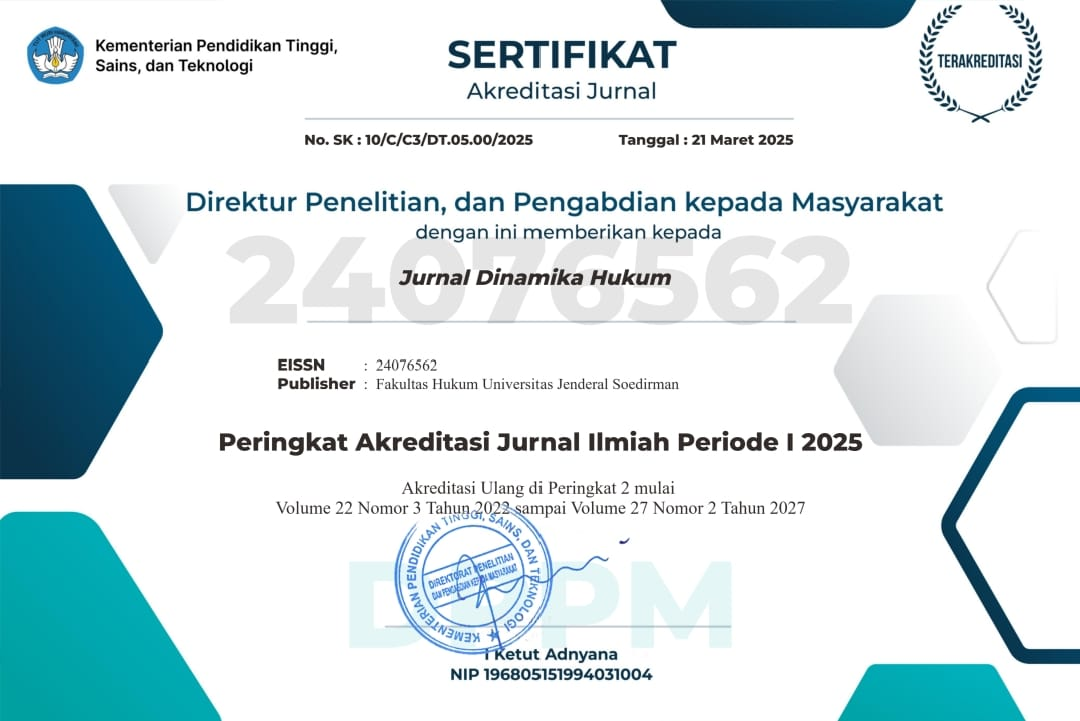The Role of Public Participation in Agricultural Land Conversion to Achieve National Food Security
Abstract
National Food Security in Indonesia faces threats from agricultural land conversion, especially with a projected 324.05 million population by 2045 and only 5.2 million ha of paddy fields left. Policy and community involvement are essential to curb land conversion and sustain food production. While regulations exist, their implementation remains suboptimal due to community support for land conversion to housing. This study delves into public participation's role in agricultural land conversion for food security. It employs two approaches: a statutory approach to understand regulations and a case approach to study their practical application. Data sources encompass laws, regulations, literature, and documents on Indonesian agriculture and food security. Factors driving land conversion include economic challenges like low incentives and high production costs, societal perceptions deeming farming less prestigious, a rising population, increased land values near cities, and irrigation water shortages. To combat land conversion, the strategy advocates for active stakeholder involvement, emphasizing community participation in planning, execution, monitoring, and evaluation. This approach, backed by legal analysis, aims to effectively thwart land conversion and preserve agricultural lands.

1.jpg)
1.jpg)


